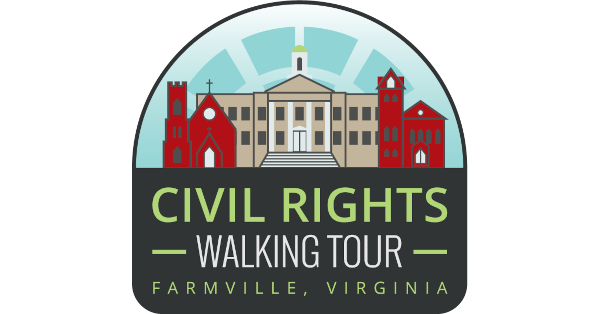
Looking for educational opportunities as we prepare for Black History Month in February but not sure where to start? Tucked in the heart of Prince Edward County, Farmville offers a great deal more than small-town charm and Main Street shopping. Woven through our little town’s historic sites and landmarks is a narrative essential to understanding our country’s past: brave student strikers speaking out against unequal educational facilities alongside a county’s determination to shut down all public schools for five years rather than integrate them. Farmville is, after all, the birthplace of the student-led civil rights movement.
Here in Farmville we’ve been working to commemorate our past as we look to the future. Our civil rights trails mark our history and allow us to share it with you.
- The Civil Rights Walking Tour is a two-mile, self-guided tour in downtown Farmville with 17 stops.
- The Civil Rights in Education Heritage Trail is a self-guided driving tour that traverses multiple counties with 50 historic sites and landmarks featuring civil rights victories. Prince Edward County is home to eight of these stops.
Interested in learning more? Check out our recommended itinerary below, and feel free to substitute other stops on our civil rights trails based on your own interests. We’ve built out a day filled with history, education, and fun for the entire family. Join us, and dive into the story of Farmville!
Stop 1: Farmville’s Historic Churches
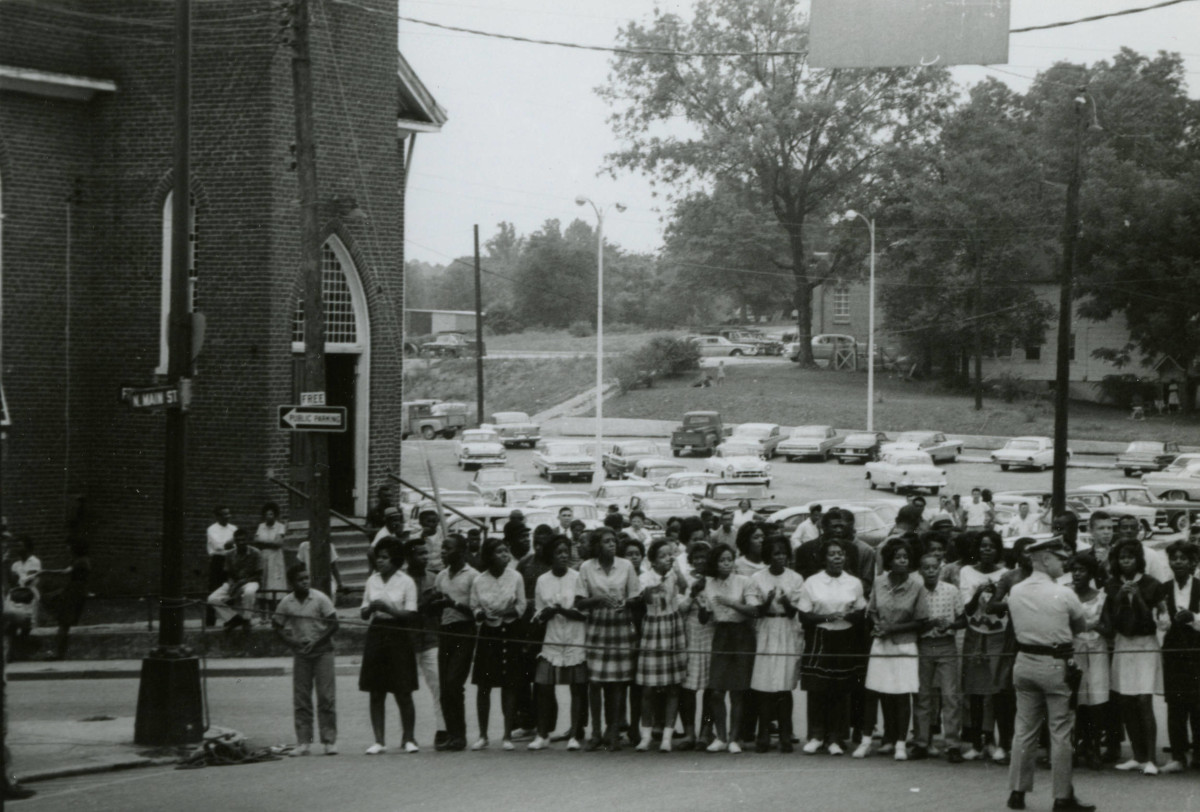
Photo Credit: Virginia Commonwealth University Libraries
Start your day off with a walking tour of some of the places most central to the struggle for civil rights: Farmville’s houses of worship. These churches served as centers of activism and resistance throughout the civil rights movement. Three of particular historic significance include:
- First Baptist Church │100 S. Main Street
First Baptist Church marks the location where Barbara Johns and her fellow strikers met with the NAACP to convince attorneys to take on their case challenging the constitutionality of segregation in public schools.
- Beulah African Methodist Episcopal Church │115 S. Main Street
Beulah AME Church served as a civil rights hub for activism and organization during the years in which the Prince Edward County schools remained closed.
- Johns Memorial Episcopal Church │400 High Street
In 1963, when groups of students tried to attend services in a number of Farmville churches, Johns Memorial Episcopal Church was the only church into which they were admitted.
Stop 2: High Street Monuments│Intersection of Randolph and High Streets
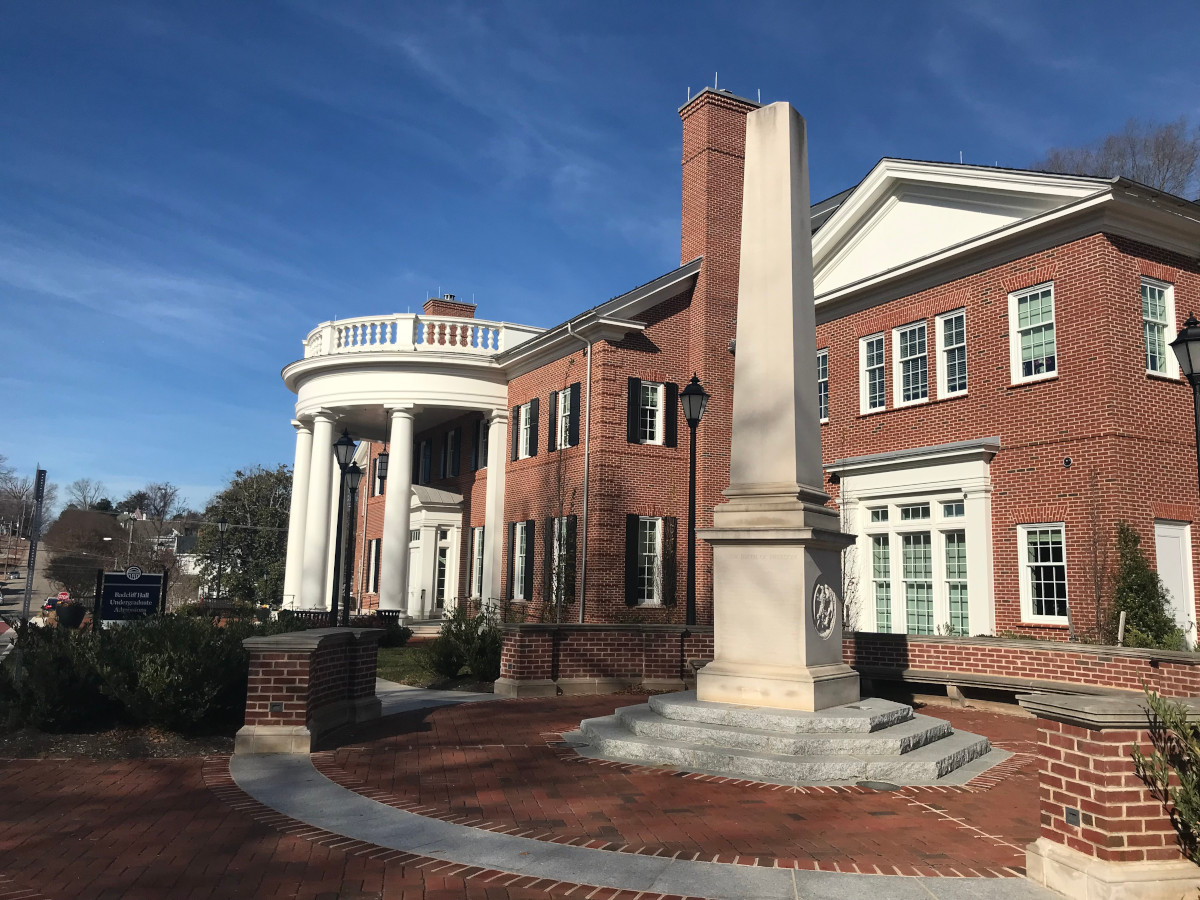
After visiting Johns Memorial Episcopal Church, you’ll be standing on historic High Street directly across from Longwood’s campus. Two monuments lie nearby. The tallest is a monument dedicated in 2018 to “persons in the community who aspired to expand freedom and civil rights throughout American history.” The statue commemorates “A New Birth of Freedom.” Those listed in the dedication include Barbara Johns and her fellow student strikers at Moton along with all Black students barred from attending school in Prince Edward County from 1959-1964. Directly across Randolph Street is a Confederate monument dedicated in 1900 to Confederate soldiers by veterans and the Daughters of the Confederacy. The soldier atop the monument was removed in June of 2020 on the unanimous vote of Farmville’s town council. Currently, the base remains, but there are plans to relocate it to the Confederate cemetery.
Stop 3: Walker’s Diner│307 North Main Street
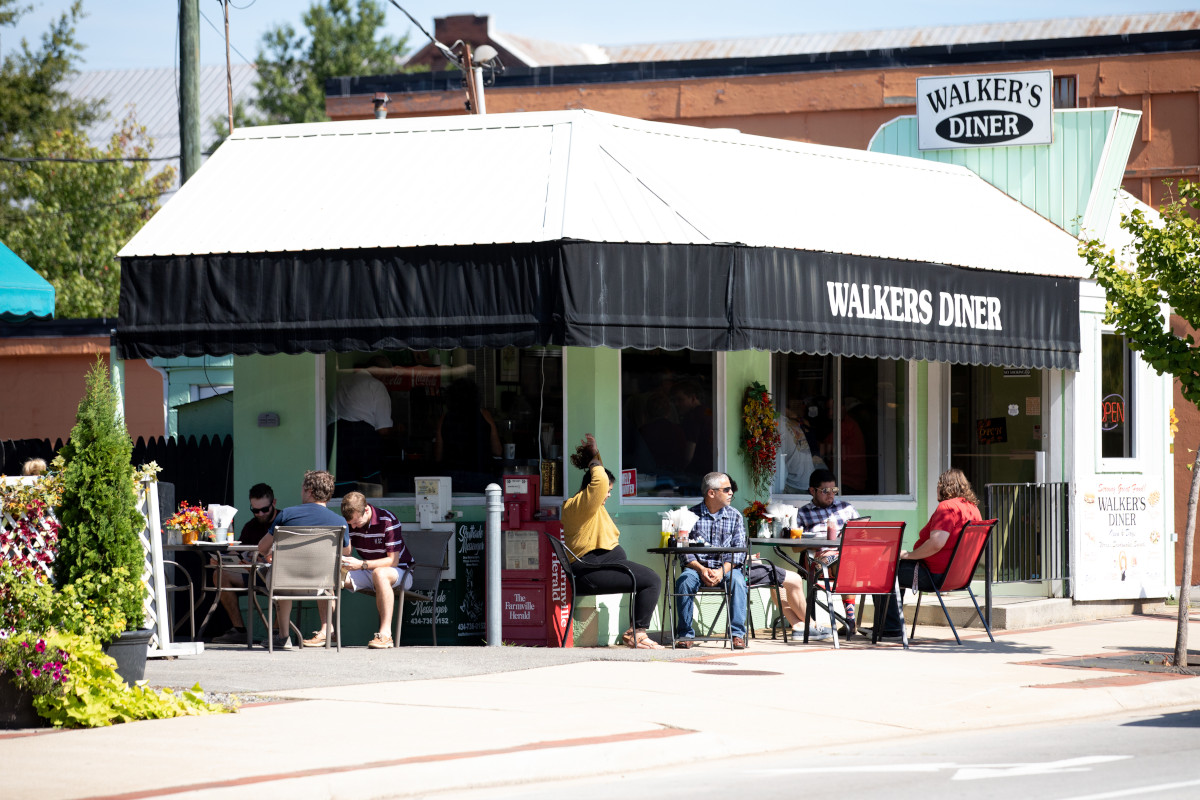
Walk down the hill to Main Street, and you’ll smell some delicious home cooking. Get ready to step back in time for brunch at a charming, classic diner. Whether it’s the flaky biscuits, fluffy french toast, or sweet fried apples, Walker’s has been a town favorite since it opened as O’Neil’s Diner in 1955. This historic valentine diner was manufactured in Wichita, KS, and brought by rail to Farmville in the 1950s. Like Walker’s, many valentine diners shipped across the country remain in operation today. Now open Wednesday through Sunday until 2 p.m., Walker’s is still hopping! Grab a hot cup of coffee and your pick for brunch.
Stop 4: Twin Lakes State Park │788 Twin Lakes Rd, Green Bay
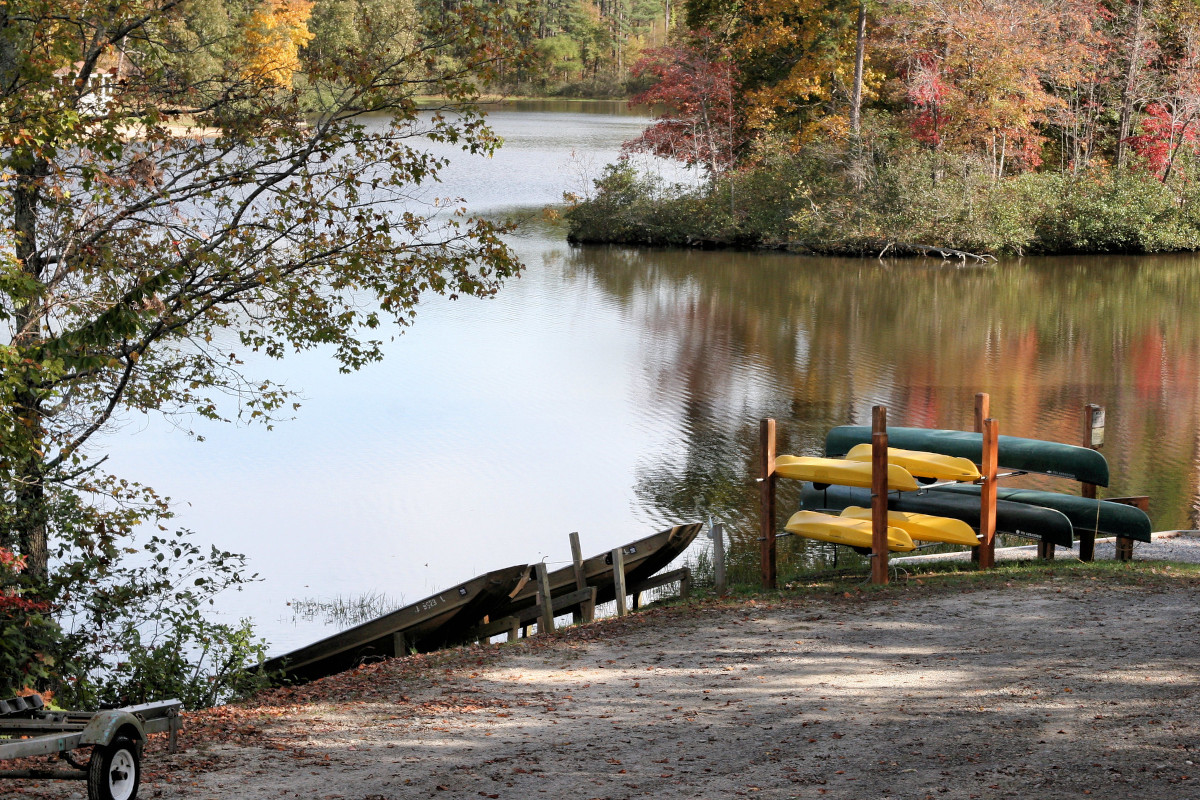
Photo Credit: Virginia Department of Conservation & Recreation
After brunch, take a 15-minute drive to the country and head to Twin Lakes State Park. As the struggle for civil rights played out in Prince Edward County’s education system, it was also reflected in other areas, including our state parks. Built in the 1930s by the Civilian Conservation Corps, Godwin Lake and Prince Edward Lake recreation areas were originally available only for the use of the white residents of Prince Edward County. However, in June of 1950, Prince Edward State Park for Negroes opened as the only pre-Civil Rights Era state park for African Americans. During this time, Godwin Lake remained open to whites only. In 1976, the two spaces combined to form Twin Lakes State Park. Today, the twin lakes welcome all visitors to 548 acres for hiking, swimming, boating, and fishing. Take the Between-the-Lakes trail to see both of the historic lakes, and enjoy the beautiful views.
Stop 5: Robert Russa Moton Museum│900 Griffin Blvd.

Photo Credit: Moton Museum
After some time outdoors, head back to Farmville to explore the historic site of Farmville’s student strike. Open from 12-4 p.m. Monday through Saturday, Moton Museum is the former Robert Russa Moton High School and now a National Historic Landmark site. In 1951, students at the high school walked out to protest unequal educational facilities. This student strike, led by 16-year-old Barbara Johns, sparked the court case that was the only student-initiated case included in Brown v. Board of Education. Now a museum, Moton strives to keep the Moton Story alive and to serve as a policy center to the study of civil rights in education. Explore the exhibits and learn more about Farmville’s unique past and the brave students who took a stand.
Stop 6: Herald Offices│114 North Street
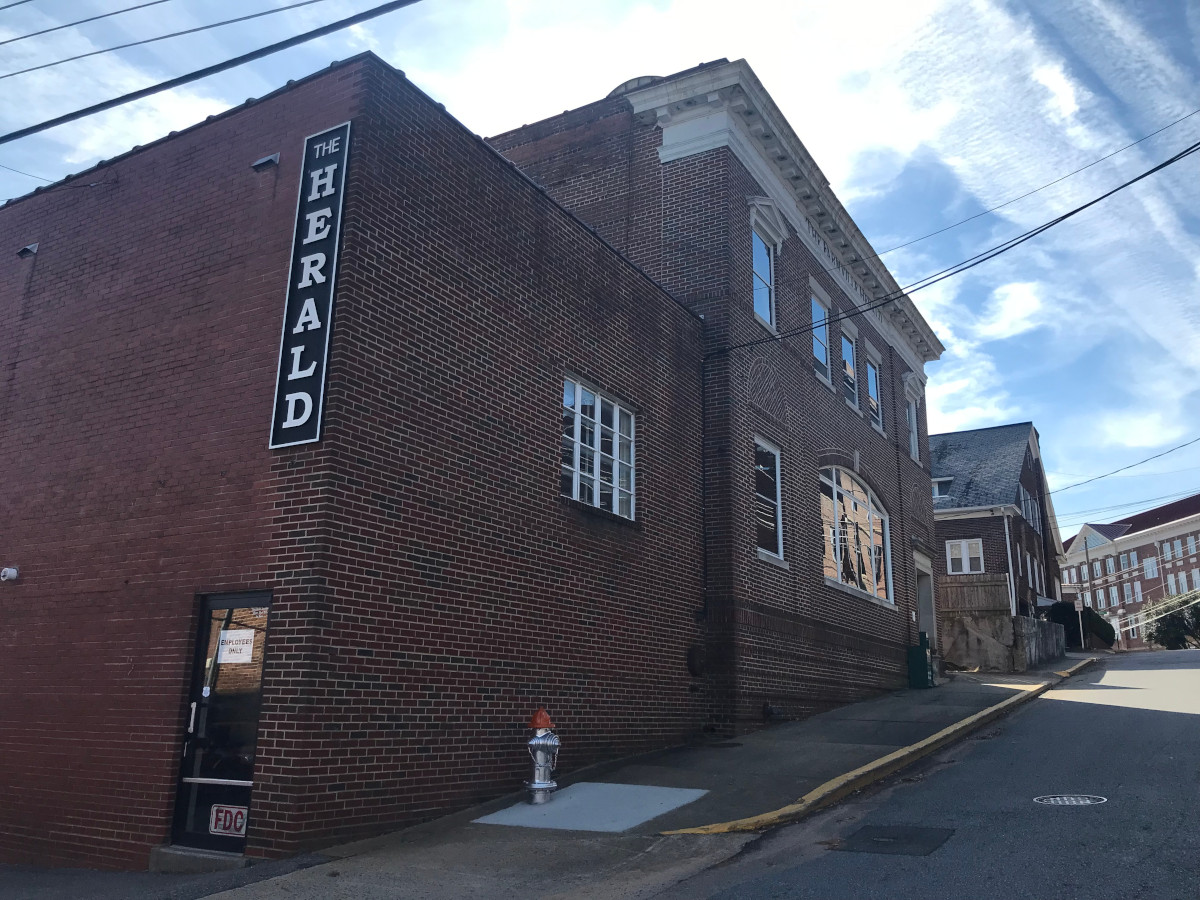
When Moton closes for the day, head back downtown to High Street to see the Farmville Herald offices. Founded in 1890, the Farmville Herald has been the main newspaper in Prince Edward county for over 130 years. During the school closings, Editor Barrye Wall established the Herald as an opponent of desegregation, using it to support county efforts to establish private schools. Read more about the history of the paper on the Herald’s website.
Stop 7: North Street Press Club │127 North Street
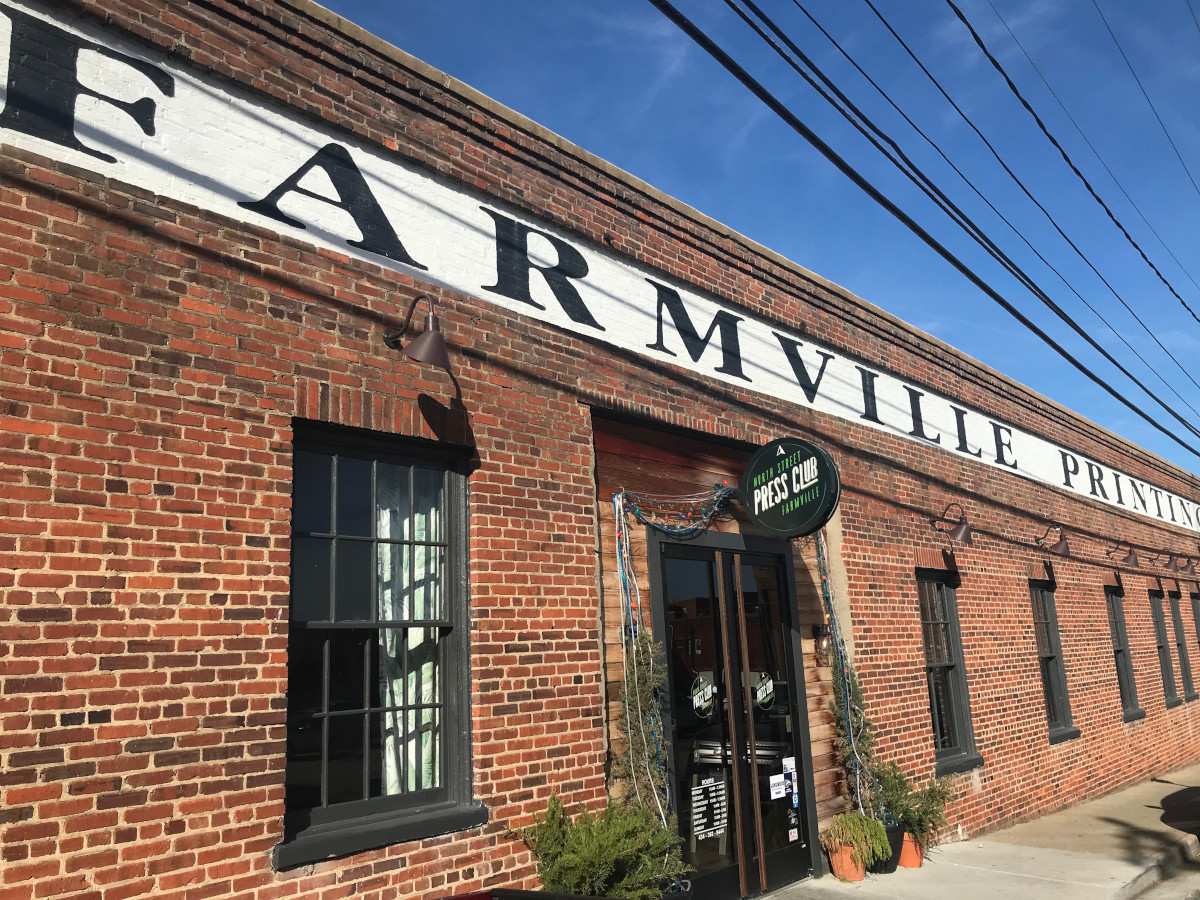
All this history making you hungry? Housed in the former printing location for the Farmville Herald, North Street Press Club is located directly across the street from the Herald offices. This modern restaurant and bar offers live music, delicious eats, and an energetic atmosphere — all in a uniquely historic space! The menu is varied and internationally inspired, serving up everything from tuna tacos to pad thai to naanh mi. Try one of the Press Club’s specialty burgers, all of which are named after famous journalists. Our personal favorite is the Clarence Page, featuring brie, caramelized onions, fig jam, bacon, and garlic aioli, topped with arugula. Don’t forget to check out the drink and dessert specials as you rest from a full day’s adventures.
Farmville’s history has shaped who we are today and is helping us learn who we want to be. Our little town has so much to offer, and we can’t wait to share it with you. Come visit and explore today!
